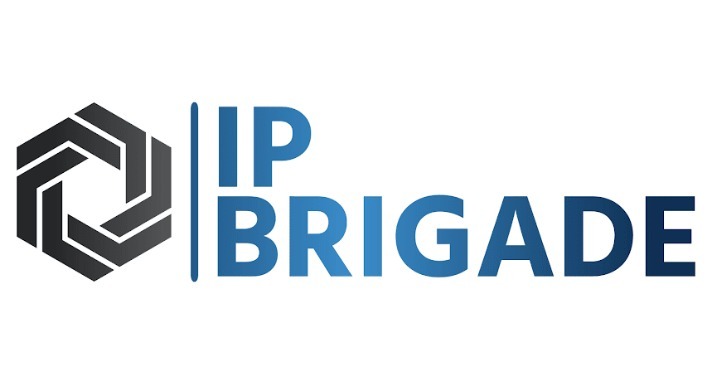The implementation of the Unified Patent Court (UPC) marks a significant milestone in the European patent landscape. Designed to centralize patent litigation and create a more streamlined system, the UPC has brought about profound changes to how businesses and legal professionals approach patent searches and filings in Europe. This article explores the impact of the UPC on patent search strategies, offering insights into how stakeholders can adapt to the new environment.
Understanding the Unified Patent Court
The Unified Patent Court is a judicial system established to handle disputes related to European patents and Unitary Patents (UPs). The UPC aims to provide a single forum for patent litigation across participating European Union (EU) member states, thereby reducing the need for parallel legal proceedings in multiple jurisdictions. With its implementation, inventors can now opt for a Unitary Patent, which offers protection across most EU member states through a single application.
How the UPC Affects Patent Searches
1. Shift Towards Broader Geographical Coverage
Under the UPC system, Unitary Patents provide protection in multiple countries simultaneously. This has influenced the way patent searches are conducted, as stakeholders must now consider:
Expanded Scope: Searches need to account for a broader geographical area, ensuring that prior art is identified across all participating UPC states.
Language Barriers: Patent documents from different countries may require multilingual analysis, emphasizing the need for advanced translation tools or multilingual search capabilities.
2. Increased Focus on Litigation Risk
The centralization of litigation under the UPC has heightened the importance of assessing potential risks during patent searches. Key considerations include:
Opposition and Invalidation Risks: A single successful invalidation action in the UPC can affect the validity of a Unitary Patent across all participating states. Patent searches must now account for any prior art that could pose a risk to the enforceability of a Unitary Patent.
Competitor Analysis: Identifying the patent portfolios of competitors is more critical than ever, as a UPC ruling can have wide-reaching implications.
3. Emphasis on Comprehensive Prior Art Searches
The high stakes of UPC litigation have made comprehensive prior art searches a priority. Stakeholders must:
Examine both national patents and European patents that may not have previously been as relevant.
Use advanced tools, such as semantic search and natural language processing (NLP), to ensure thorough coverage of potential prior art.
4. Strategic Filing Decisions
The option of filing for a Unitary Patent has introduced new strategic considerations for applicants. These include:
Cost-Benefit Analysis: While Unitary Patents simplify protection across multiple countries, they also come with centralized risks. Patent searches should help determine whether a Unitary Patent or a traditional European patent application (with selective national validations) is the better choice.
Jurisdictional Overlap: Identifying prior art across non-UPC member states (e.g., Spain and Croatia) remains crucial for inventions that require broader European protection.
Implications for Patent Professionals
1. Enhanced Search Tools and Technologies
The complexity of the UPC system has driven demand for more advanced patent search tools. Features like multilingual search capabilities, AI-driven prior art analysis, and integration with global patent databases are becoming essential.
2. Collaboration Between Legal and Technical Teams
Effective patent searches under the UPC require collaboration between technical experts and legal professionals. Patent attorneys must work closely with researchers to:
Identify the most relevant prior art.
Assess the legal implications of prior art under the UPC framework.
3. Proactive Monitoring of UPC Jurisprudence
As the UPC develops its case law, staying informed about rulings and their implications for patent validity and infringement will be critical. Patent searches should incorporate insights from recent UPC decisions to anticipate potential legal risks.
Challenges and Opportunities
Challenges
Navigating Transitional Provisions: During the transitional period, patent holders can opt out of the UPC’s jurisdiction. This creates uncertainty about which patents are subject to the UPC framework.
Adapting to New Processes: Legal and patent professionals must familiarize themselves with the UPC’s procedures and requirements.
Data Complexity: The integration of national and European patent databases to support UPC-related searches adds layers of complexity.
Opportunities
Streamlined Patent Protection: The UPC simplifies enforcement across multiple countries, making it easier to protect innovations.
Unified Strategies: Businesses can adopt a more cohesive approach to patent searches and filings, focusing on broader European coverage.
Enhanced Risk Management: The centralized nature of the UPC allows for more efficient assessment of litigation risks.
Best Practices for Adapting Patent Search Strategies
To thrive under the UPC system, stakeholders should consider the following best practices:
Invest in Advanced Search Technologies
Utilize tools with NLP capabilities to overcome language barriers and improve search accuracy.
Leverage AI-driven analytics for faster and more comprehensive prior art identification.
Prioritize Comprehensive Search Coverage
Conduct searches across both UPC and non-UPC jurisdictions to ensure complete protection.
Analyze patent families to identify relevant documents in all jurisdictions of interest.
Monitor UPC Developments
Stay informed about UPC rulings, procedural updates, and changes in participating states.
Incorporate insights from UPC case law into search strategies and risk assessments.
Collaborate with Experts
Engage with patent attorneys, technical experts, and search professionals to ensure a holistic approach to patent searches.
Regularly review and refine search strategies based on feedback and emerging trends.
Conclusion
The Unified Patent Court represents a transformative shift in the European patent system, with significant implications for patent search strategies. By centralizing litigation and introducing the Unitary Patent, the UPC has created both challenges and opportunities for stakeholders. To succeed in this new landscape, businesses and legal professionals must adopt advanced search tools, prioritize comprehensive risk assessments, and stay informed about UPC developments. By doing so, they can navigate the complexities of the UPC system and ensure robust protection for their innovations across Europe.


